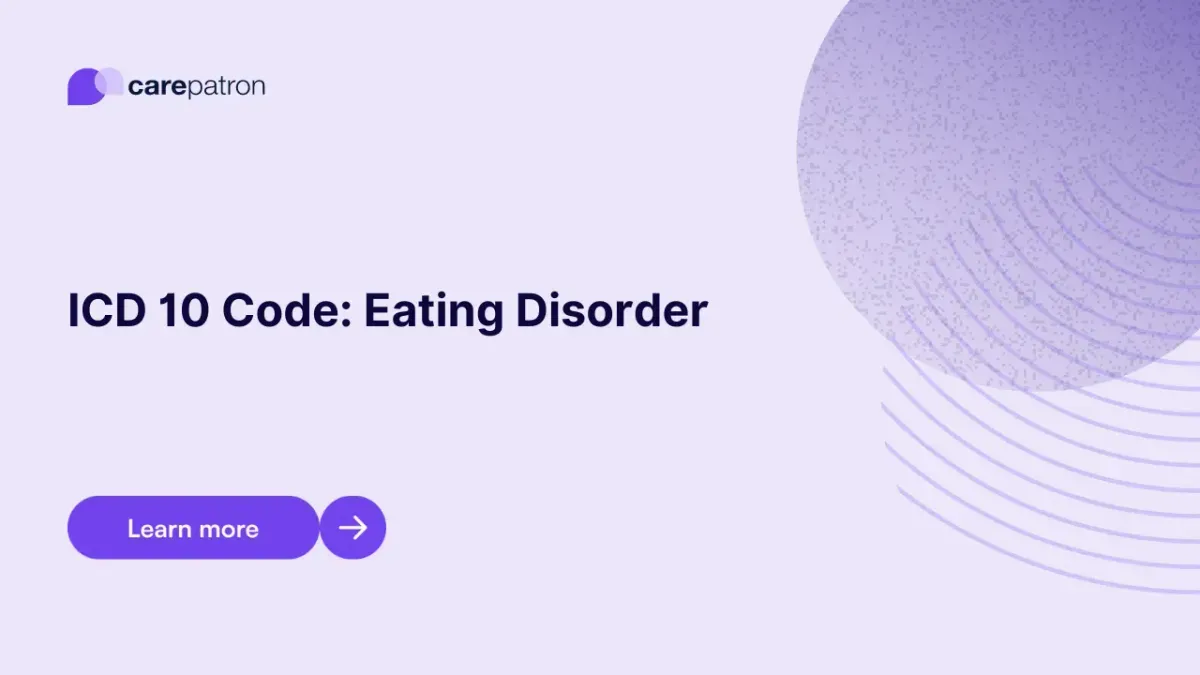
Eating Disorder ICD-10-CM Codes | 2023
Read this short guide to learn about Eating Disorder ICD codes you can use!
Use Code
Commonly asked questions
Healthcare professionals will conduct comprehensive examinations of their patients. These examinations will include psychological evaluations, physical evaluations, and interviews regarding their patients' eating habits, attitudes, and beliefs.
They will cross-check everything with the latest edition of The Diagnostic and Statistical Manual of Mental Disorders. If their findings match the criteria for eating disorders, they can diagnose the patient with one.
If there is significant weight loss or gain in a short period, there is a noticeable change in their eating habits; they start expressing dissatisfaction or disappointment in their body image and weight; they start excessively exercising; they start withdrawing from social interactions or avoid them; they become irritable or exhibit other changes in their moods or behaviors.
Eating disorders can be treated with psychotherapy and nutrition counseling. Those with eating disorders likely have other mental health problems, such as anxiety and depression, so antidepressants or anti-anxiety medication might be administered and prescribed.
EHR and practice management software
Get started for free
*No credit card required
Free
$0/usd
Unlimited clients
Telehealth
1GB of storage
Client portal text
Automated billing and online payments
